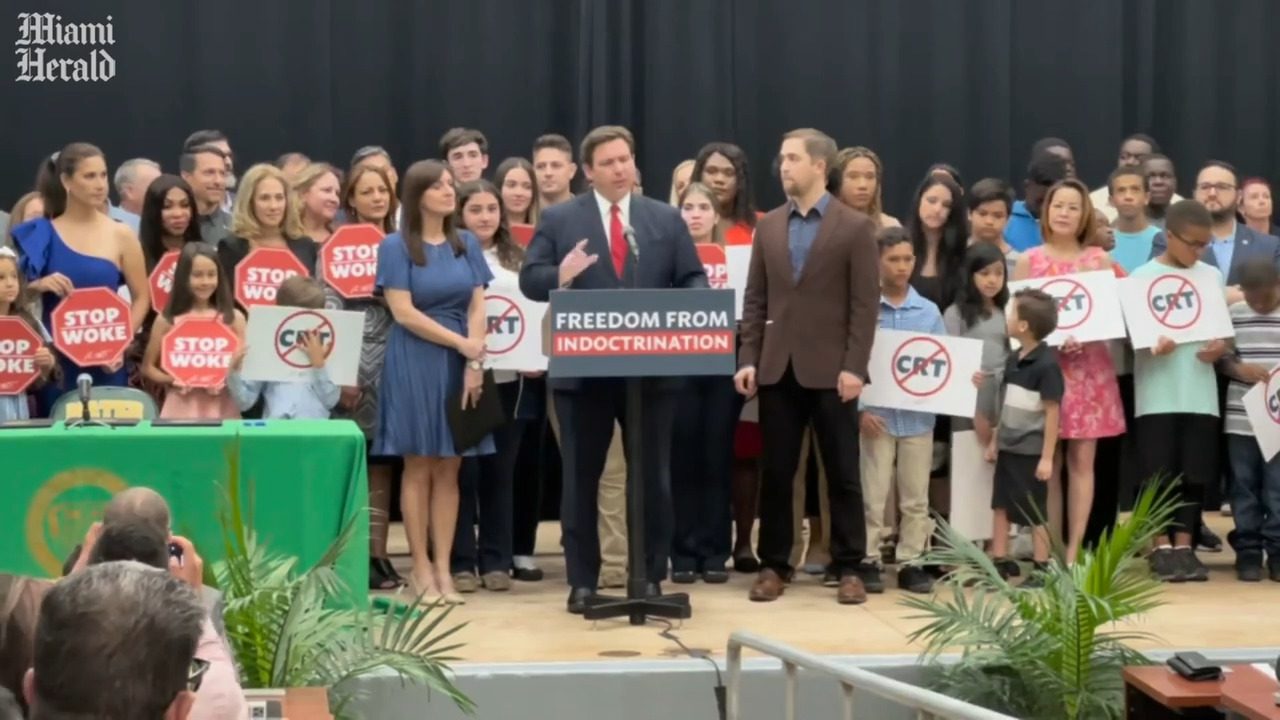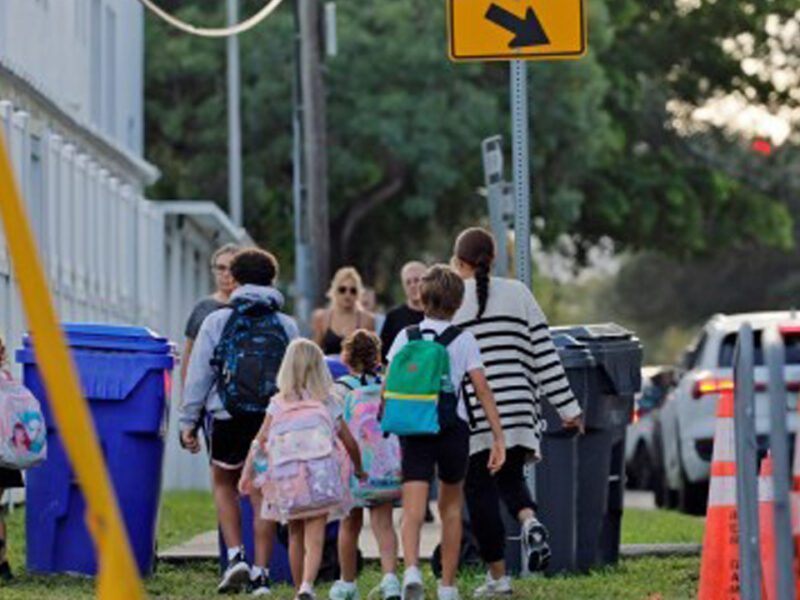
‘WOKE Act’ is ‘dystopian,’ judge says in banning it at public colleges, universities
Miami Herald | By Divya Kumar | November 17, 2022
A federal judge on Thursday ordered Florida to stop enforcing its new Stop WOKE Act at the state’s public colleges and universities.
The ruling came in two lawsuits — one filed by a University of South Florida student and professor and another led by Florida A&M law professor LeRoy Pernell — both alleging that the law illegally prevents frank discussions about the nation’s racial history in classrooms. The same judge issued a ruling in August that blocked the law from applying to workplace training.
The legislation prohibits advancing concepts that make anyone feel “guilt, anguish or other psychological distress” related to race, color, national origin or sex because of actions “committed in the past.” It is also tied to proposed regulations that would govern tenure reviews of faculty members.
Professor Adriana Novoa and student Sam Rechek, both from USF, argued the law was unconstitutional. The state countered that it has not harmed the plaintiffs and does not prohibit some of the discussions of the race-related topics mentioned in the lawsuit.
In Pernell’s lawsuit also challenging the act, the same defense lawyers wrote that because faculty members are employees of the state, “the First Amendment simply has no application in this context” because their employer “has simply chosen to regulate its own speech.”
Adam Steinbaugh, a lawyer for the Foundation for Individual Rights Expression, said the ruling was important for faculty of all political persuasions — including those who may have favored the Stop WOKE Act. The foundation is representing Novoa and Rechek.
The ruling “recognizes that faculty members are hired by the state but they don’t speak for the state,” Steinbaugh said. “They’re hired to engage in the robust exchange of views and ideas. Some of those views and ideas are going to be ones the state doesn’t like.”
In his 139-page order issuing a preliminary injunction against the law, U.S. District Judge Mark Walker quoted George Orwell.
“‘It was a bright cold day in April, and the clocks were striking thirteen,’ and the powers in charge of Florida’s public university system have declared the State has unfettered authority to muzzle its professors in the name of ‘freedom,’ ” his ruling said.
He wrote that the state was trying to argue that professors only had academic freedom if they expressed the viewpoint of the state.
“This is positively dystopian,” he wrote.
In a statement, USF said, “We are carefully reviewing the order and will promptly update our guidance, as needed.” University of Florida Provost Joe Glover said the school was suspending its investigation procedures for reported violations of the law.
The State University System said it does not comment on pending litigation. And the office of Gov. Ron DeSantis, who pushed the law, did not respond to requests for comment.
Steinbaugh, the plaintiffs’ lawyer, said he expects the state to appeal Walker’s ruling.
Novoa contended that she would have to remove readings from her courses, such as one about Jackie Robinson, the first Black man to play in baseball’s major leagues. A court filing said her instruction “advances and engages the question of how baseball’s racial past continues to shape both the game and society today.” In its response, the state contended that the act applied to the present, not historical fact.
Faculty in the Pernell case alleged universities had been taking down “public-facing statements that espoused anti-racist principles” and canceling anti-racist trainings, “creating a climate of increased racial hostility and harassment” and “generating fear among plaintiffs and other Black instructors and students who teach or take coursework in which the viewpoints disfavored by the Legislature are likely to be discussed.”
DeSantis first unveiled the framework for the law in December 2021 as he ramped up his fight against the influence of critical race theory and “wokeness” in schools and businesses across the state. Its formal name is the Stop the Wrongs to Our Kids and Employees Act.
During the 2022 legislative session, the measure spurred fierce debates and criticism, particularly from Democrats and Black lawmakers who said it would exacerbate inequities faced by minorities. The law took effect July 1.
Miami Herald staff writer Ana Ceballos contributed to this report. Divya Kumar is a higher education reporter for the Tampa Bay Times, in partnership with Open Campus.





